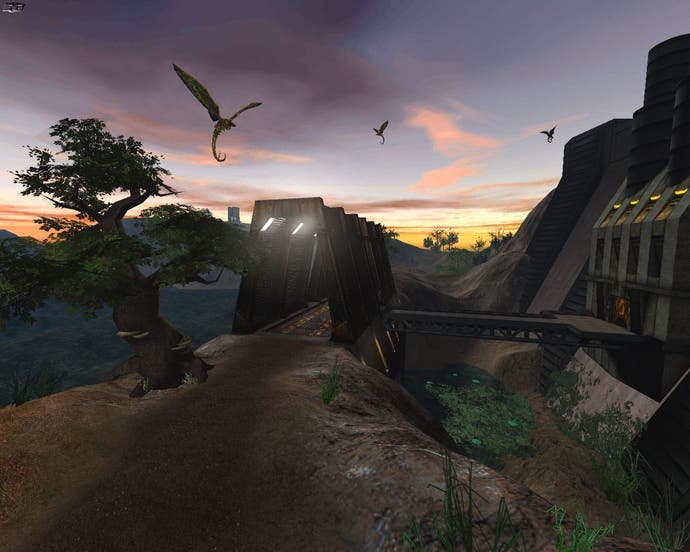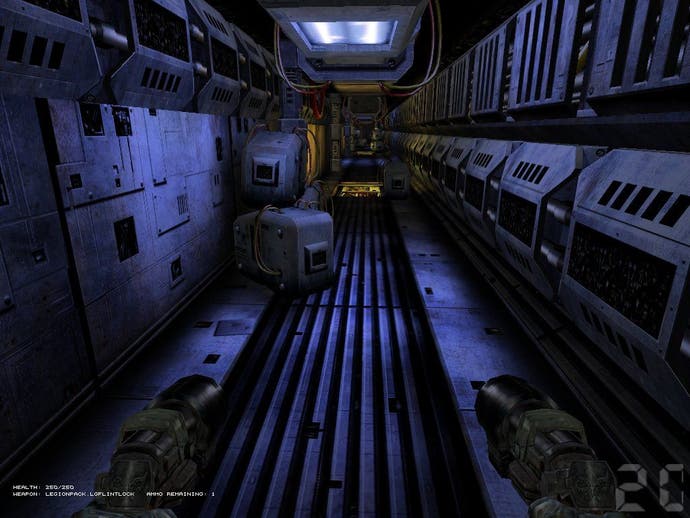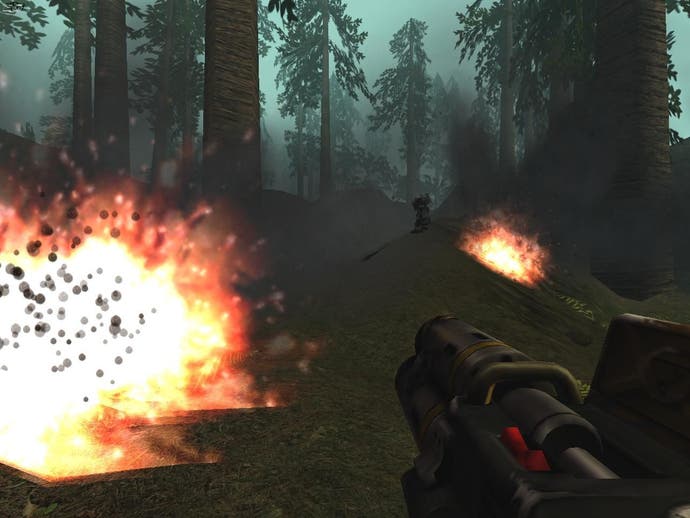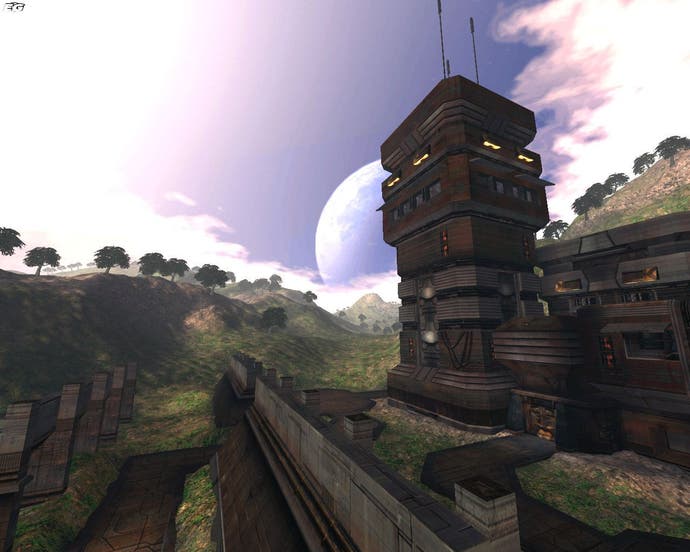Simon Donbavand of Rage
Interview - Rage talk about the latest Unreal technology and their deal with Epic to sublicense it to European developers
Last year Rage announced that they had signed a deal with Epic to sublicense the Unreal engine to European developers and publishers. We caught up with Simon Donbavand of Rage's European Unreal Engine Licensing team to find out how things have been going since then, and what the latest Unreal technology has to offer for gamers and developers alike.

Going Local
The sublicensing deal with Epic came about when Rage bought Unreal engine licenses for two of their own (as yet unannounced) games last October. Since then they have been working to sell the engine to more companies on this side of the pond, but there's more to it than that, as Simon explained.
"Rage isn't just a middle-man in the licensing process in the traditional sense. As well as introducing European developers to the technology, Rage offers dedicated 'local' European developer support for the engine - this supplements the already awesome support from Epic."
And although Rage obviously gets a cut of the royalties from any engine licenses they manage to sell, this comes at no extra cost to European game developers. "There are no differences in the licensing terms between the US and Europe - the deal is the same the world over", Simon told us, adding that "the response so far from European developers has been great. The technology is causing quite a stir and it's great to be a part of that. There are going to be some pretty awesome games out using the technology."

Middleware
Until now though European developers have traditionally preferred to develop their own engines, while Americans seem to be more at home with the idea of buying off-the-shelf solutions like the Quake, Unreal and LithTech engines. Indeed, off the top of our heads we can't think of a single European game which has been released so far based on any of these three major engines. Why is that?
"I think that's all it is, tradition. The games industry is constantly changing, and currently there is a growing market for middleware solutions at all levels. In the current climate this is often an attractive alternative to spending a considerable time developing your own engine, always worrying that technically your own internal engine still has to compete against whatever is out there when your game is released."
"Middleware, in particular the Unreal engine, allows you to concentrate on your game from day one, safe in the knowledge that the technical aspects of the game engine are being taken good care of". And according to Simon, that's one of the biggest advantages to be gained by licensing an existing engine. "As a developer you can cut a great chunk out of your development schedule by using a third party engine. All the major components - renderer, networking, effects, tools - are already there for you to use from the start. Sure you can enhance them to do something specific for your project, but the point is you don't have to worry about getting your content in from day one."
"There is also the reassurance that you are using tried and tested technology from the million selling Unreal / Unreal Tournament games, not to mention the same technology that created fantastic titles such as Deus Ex, Deep Space 9 : The Fallen and Undying."

Smoke On The Water
One of the other advantages of licensing the Unreal technology is that it is constantly evolving, and the latest version marks a huge leap forwards from what we have seen so far in games like Unreal Tournament and Deus Ex. Already screenshots of Unreal 2 and the Xbox-exclusive Unreal Championship have given us a taste of what is to come, and we should be in for an eye candy treat if the engine can live up to the hype.
"There are a wide array of new features that are going to be available to developers and gamers", Simon confirmed. "Among the many enhancements are stunning new visual effects, including specular highlighting that gives metallic objects their sheen, and a completely new state-of-the-art particle system with dynamic influences and collision that lends itself to some really cool effects."
Particle effects have always been a strongpoint of the Unreal engine, but the new system should offer some spectacular possibilities according to Simon. "For example, you could shoot a projectile through smoke and have the smoke smoothly and realistically dissipate. You can also use it to create all kinds of cool weather effects, explosions, fire, smoke, blood, ground fog and volumetric lighting."

Matinee
Unreal's new terrain system has also been gaining a lot of attention recently, allowing what Simon describes as "truly massive outdoor environments" to be built with a scale and level of detail that puts even the recent Tribes 2 to shame.
Other changes are more developer-oriented, such as the addition of 'volumes'. "This gives us the ability to have true moving water and arbitrarily shaped triggers. Volumes also provide the capability for localized physics such as gravity, slow-motion effects, and particle system forces such as wind."
No doubt in the wake of Max Payne developers everywhere will be abusing these possibilities to the best of their abilities. Meanwhile an improved scripting system for producing cutscenes should enable them to make more immersive and cinematic in-game cutscenes. Called Matinee, the new system works "totally inside UnrealED" and should make setting up scripted sequences much easier and more flexible. Good news for Machinima fans then.
Conclusion
Whether Rage can convert European developers to the idea of relying on a third party engine remains to be seen. But certainly the latest Unreal tech has a lot to offer developers and gamers alike, and we should start to see the first fruits of Rage's sublicensing next year.
In the meantime work continues at Rage on their own in-house Unreal-engined games, although "both titles are still early in development" and Simon wasn't able to tell us anything about them, only saying that "we will hopefully be announcing something in the not so distant future".
-
Unreal 2 screenshots
Unreal Championship screenshots

